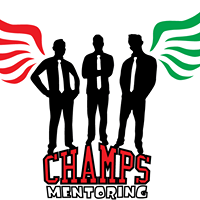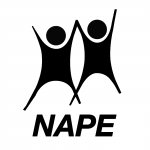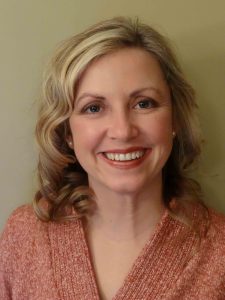Posts by Mark Taylor
The Rosemary Evans Bequest Award winner Tara Paxman – NAPE 008
Tara Paxman was the first recipient of The Rosemary Evans Bequest Award given by The National Association for Primary Education. Now in her 3rd year as a teacher Tara talks to Mark Taylor about why she applied and the positive effects it has had on her teaching and professional development.
Are you a recently qualified early years / primary teacher (QTS gained since June 2016)?
Are you keen to reflect on your professional development as a classroom practitioner?
Are you keen to get something published in an educational journal and add it to your CV?
If so, we hope you will be interested in the Rosemary Evans Bequest Award to be given on an annual basis to the best article received for publication in Primary First from a recently qualified teacher. The award is for £200 and the theme can be selected from one of the following:
- The highlights and challenges of taking on your own class
- What do you see as the key principles and/or values which inform your approach to learning and teaching?
- How can teacher retention be improved?
- The global teacher for the 21st century.
The article should be between 1500 and 2000 words and you are welcome to select your own focus and title, but drawing on one of the above themes. The article should both critically explore aspects of your own experience and identity as a recently qualified teacher and be informed, where appropriate, by relevant literature. Your personal voice is seen as a key dimension of the writing.
The final date for submission for this academic year is 1 May 2019. It is to be submitted electronically in Word or PDF format to Robert Young, NAPE General Secretary at rmyoung1942@yahoo.co.uk. The Primary First Editorial Board will judge the submissions and it is anticipated that more than one submission will be considered for inclusion in the journal, although not in receipt of the Award itself. Further details about the Award can be requested from Robert Young.
Background and Criteria
As a result of a very generous bequest from the Rosemary Evans estate, the NAPE Council decided to make an annual award of £200 for the best article received from a recently qualified early years/primary teacher in the United Kingdom on a theme which we hope has particular salience for recently qualified teachers. The NAPE journal, Primary First, attracts contributions from distinguished educationists as well as current classroom practitioners at different stages of their careers and we see contributions from new teachers as making an important and very welcome contribution to educational discourse. We are pleased to announce that since the annual award was introduced in 2016, two primary teachers, new to the profession, have had their articles published in the Journal and have received the award.
The following criteria will be used for assessing the submissions:
- it meets the specifications regarding word-length and choice of theme;
- it is written with clarity, fluency and in a style which engages the reader;
- it illuminates the issues/topics being addressed with insight and informed judgement;
- it address aspects of the author’s own experience as a teacher with a perceptive and critical eye.
- it draws selectively and cogently on elements of relevant literature (which might include local and/or regional documents, published articles, key texts etc.), acknowledging sources, where appropriate.
2 October 2018
C.H.A.M.P.S. Mentoring with Vondale Singleton. LF015
Vondale Singleton joins me on the Learning on Fire podcast and explores the most important learning and educational moments that shaped his life.
Our guest – Vondale Singleton
Vondale Eugene Singleton Sr. was born on the Southside of Chicago. After overcoming the death of his mother due to crack-cocaine, an incarcerated father throughout high-school, and the negative influences of the Ida B. Wells Housing projects he beat the odds becoming a first-generation college student earning his Bachelors of Science Degree in Elementary Education and his Master’s Degree in Marital and Family Therapy from Oral Roberts University in Tulsa, OK. He credits his mentor, Steven Robertson as the person who invested sacrificially his time and resources to help him become the man he is today.
The last 16 years he has worked as an advocate in primary, secondary, and higher education, as both a teacher and administrator. He believes that “salvation plus education is an unbeatable combination.” He started C.H.A.M.P.S. for young men in an effort to mentor young men with similar circumstances. He helped organize the Award Winning Music Video at the White House Film Festival, which landed the C.H.A.M.P.S. a visit to the White House with President Obama.
Vondale has won numerous awards and received many recognitions for his work with C.H.A.M.P.S. He was recently named the “Father of the Year” for the State of Illinois by the Illinois Fatherhood Initiative, a Walmart Community Playmaker through the coveted Chicago Blackhawks as well aa MLK Community Champion. He is married to his College sweetheart, Dr. Patrina Singleton. They reside in Chicago, Il with their two beautiful children, Promise Singleton (9), and Vondale E. Singleton, Jr, (4).
Questions asked on the Learning on Fire Podcast Interview
- Who are you?
- What does your life look like now and how is it different from when you were growing up?
- What was valuable about your school experience?
- Which teachers do you remember and why?
- Who did you admire when you were young?
- What was it about that person that had such an impact?
- What was the best piece of advice you have ever been given and who gave it to you?
- What advice would you give your younger self?
- What does your future look like?
- What podcast, book, video, film, song or other resource has had the biggest impact on your life and why?
Resources mentioned
The Bible
Believe to Achieve by Howard H White
Contact information
Social Media – @champsmentoring
Show Sponsor
National Association for Primary Education
Our aim is to achieve a higher priority for the education of children from birth to 13. High quality learning in the early years of life is vitally important to the creation of an educated society. Young children are not simply preparing for the future, they are living a never to be repeated time of life and the best way to learn is to live.
Founding Member John Coe – NAPE 007
Mark Taylor talks to founding NAPE member John Coe about his educational experiences, views and involvement with the National Association for Primary Education since 1980.
John Coe began teaching in Essex. After primary headships, first of a small rural school and then of an urban school serving an underprivileged community; he joined the West Riding of Yorkshire authority as Inspector of Schools. His second local authority appointment extended over 16 years as Senior Adviser to Oxfordshire. In 1984 he moved into Higher Education as Course Leader of the PGCE Primary Course at the London Institute of Education. A later move to Oxford Brookes University involved him in research and both initial and in-service education. He is a Fellow of the University and a founding member of NAPE.
Our aim is to achieve a higher priority for the education of children from birth to 13. High quality learning in the early years of life is vitally important to the creation of an educated society. Young children are not simply preparing for the future, they are living a never to be repeated time of life and the best way to learn is to live.
High School Math Teachers with Jeanette Stein. LF014
Jeanette Stein joins me on the Learning on Fire podcast and explores the most important learning and educational moments that shaped her life.
Our guest – Jeanette Stein
I love teaching and have been at it my whole life. I can remember being a young girl teaching the neighborhood kids, my stuffed animals, and even my dog, Almond, if she would sit long enough.
Encouraging children and helping them succeed is a passion of mine. I am very proud of creating curriculum and lesson plans that reach that goal. I love helping teachers also achieve their goals. I believe in being a lifelong learner and am currently working on an even greater understanding of teaching and learning, iPads, engaging learners, marketing, and balancing life.
I am always looking for new ways to help teachers reach their goals. As of late, I have become aware of some great new tools on the horizon bringing educational reform and I am excited to be in education during these times!
This site is created out of a passion to help teachers teach. With lesson plans for every standards, on-demand training to help you implement the standards with all of your students, and personalized coaching, everything has been planned for the students’ and teachers’ success in the Algebra classroom.
If you are interested in working together, send me an inquiry and I will get back to you as soon as I can!
- jeanette@highschoolmathteachers.com
Questions asked on the Learning on Fire Podcast Interview
- Who are you?
- What does your life look like now and how is it different from when you were growing up?
- What was valuable about your school experience?
- Which teachers do you remember and why?
- Who did you admire when you were young?
- What was it about that person that had such an impact?
- What was the best piece of advice you have ever been given and who gave it to you?
- What advice would you give your younger self?
- What does your future look like?
- What podcast, book, video, film, song or other resource has had the biggest impact on your life and why?
Resources mentioned
The Bible
Contact information
www.facebook.com/algebra1teachers/
Show Sponsor
National Association for Primary Education
Our aim is to achieve a higher priority for the education of children from birth to 13. High quality learning in the early years of life is vitally important to the creation of an educated society. Young children are not simply preparing for the future, they are living a never to be repeated time of life and the best way to learn is to live.
What are the criteria of a good junior school? – NAPE 006
A Report to the Junior School Sub Panel – Ministry of Education – 17th May 1946
The National Association for Primary Education present an annual lecture with a guest speaker who creates their talk inspired by the work of Christian Schiller.
This episode is read by Peter Cansell from the book ‘Christian Schiller in his own words’
CHRISTIAN SCHILLER CBE, MC, MA
Christian Schiller was born on the 20th September 1895. He went to a prep school and then to Gresham’s School where he was head boy. Military service in the First World War followed and he was wounded in action.
After the war he read mathematics at Cambridge and then studied with Percy Nunn at the London Day Training College before beginning his teaching career. In 1924 he was appointed HMI and then followed a long period of work with the schools in Liverpool where his
contact with poor children and their families was a deeply formative experience. He became District Inspector and later filled this role in Worcestershire.
In 1946 he became Staff Inspector for Primary Education and his influence, often in partnership with his friend Robin Tanner, HMI and etcher, was strongly felt as elementary schools developed into primary schools with a distinctive child centred approach which drew on children’s innate creativity and which recognised the powerful learning which comes from direct experience.
On his retirement in 1955 he began a new career as he created a one year course at the University of London Institute of Education for teachers and heads seconded from their schools. Each course was kept small, no more than 12 people who spent their year visiting schools and in discussion led by Schiller who often remained largely silent until he revealed his vision and optimism about the future in a brief summing up. There were no examinations or required coursework yet, as this writer will testify, everyone worked extremely hard. The course was hugely influential and most of his former students have gone on to hold senior leadership positions in education.
Christian Schiller died on the 11th February 1976. The following year the first memorial lecture was presented in London and the annual lectures, now organised by the National Association for Primary Education, continue to the present day. We are pleased to be able to celebrate the work of this great man who contributed so much to the principles and practice of primary education. To those who say look at us, obsessed with children being coached to pass tests, schools competing rather than co-operating, I reply , look more deeply , beyond today’s political froth. Schiller’s work continues and one day, will prevail.
—————————————————————————————
‘Christian Schiller in his own words’ was published by the Association in 1979. The book is available price £5.00 from the NAPE national office.
E: nationaloffice@nape.org.uk
T: 01604 647646





